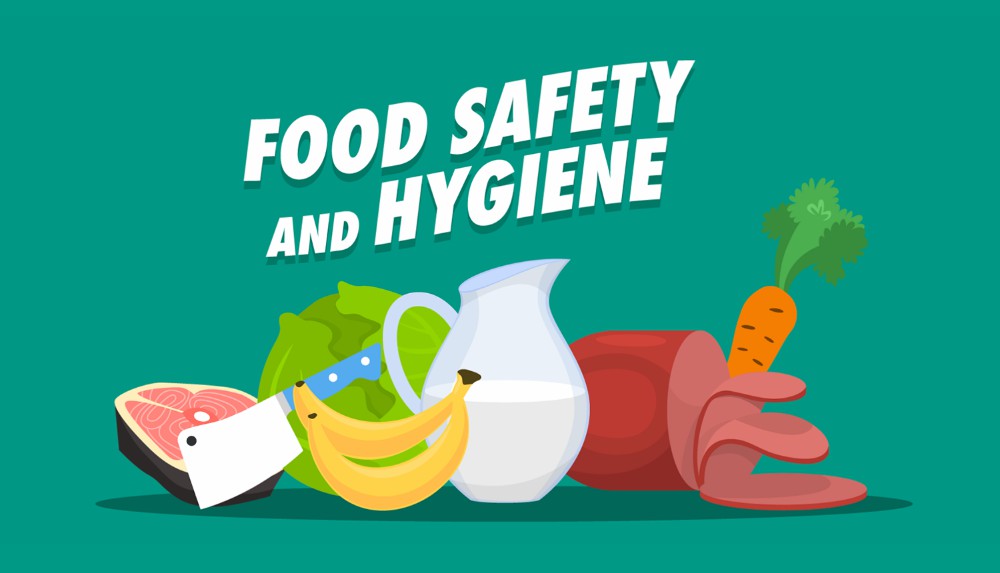Unlocking Food Safety: The Imperative of HACCP Training for Irish Businesses
In today’s fast-paced food industry, ensuring the safety and hygiene of food products is not just a legal obligation but a pivotal aspect of building and maintaining consumer trust. HACCP (Hazard Analysis Critical Control Point) training is a crucial step towards achieving this goal, particularly for food businesses in Dublin, Cork, Galway, Limerick, Waterford, and Belfast. This blog post delves into why HACCP training is vital for food safety compliance and how HACCP certification can help your restaurant, catering business, or food manufacturing operation meet legal requirements and protect public health.
What is HACCP?
HACCP stands for Hazard Analysis Critical Control Point. It is a systematic preventive approach that addresses food safety through the analysis and control of biological, chemical, and physical hazards in production processes. In Ireland, HACCP not only aligns with EU food safety regulations but is also a key requirement in numerous food safety standards.
The Importance of HACCP Training in Ireland
HACCP training is vital for several reasons:
- Legal Compliance: In Ireland, food businesses must comply with strict food safety laws, including the European Union (EU) legislation on food hygiene. HACCP training equips your staff with the knowledge to fulfill these legal requirements.
- Contamination Prevention: Implementing HACCP principles helps in identifying potential hazards and establishing control measures to reduce risks. It minimizes the chances of foodborne illnesses that can lead to severe health issues.
- Public Health Protection: Effective HACCP practices contribute significantly to safeguarding public health by ensuring that food served to customers is safe for consumption.
- Enhancing Reputation: HACCP certification signals to your customers that your business prioritizes food safety, enhancing your brand's reputation and customer loyalty.
Understanding HACCP Principles
The HACCP system is built on seven fundamental principles:
- Conduct a Hazard Analysis: Identify potential hazards that can occur in the food production process.
- Determine Critical Control Points (CCPs): Find points in the operation where hazards can be controlled or eliminated.
- Establish Critical Limits: Set maximum and minimum limits to ensure each CCP effectively controls the hazard.
- Establish Monitoring Procedures: Monitor CCPs regularly to ensure consistent compliance with critical limits.
- Establish Corrective Actions: Determine actions to be taken when monitoring indicates that a critical limit has not been met.
- Establish Verification Procedures: Use methods, procedures, or tests to confirm that the HACCP system is functioning as intended.
- Establish Record-Keeping Procedures: Maintain documentation for all of the above, which is crucial for legal compliance and quality control.
Getting HACCP Certified: Steps for Irish Food Businesses
Achieving HACCP certification involves several steps:
- Training Your Team: Start with comprehensive HACCP training for your staff. Online HACCP certification courses are available for convenience, allowing employees in different locations to learn at their own pace.
- Conducting a Hazard Analysis: Perform a thorough analysis of processes to identify food safety hazards.
- Implementing HACCP Plans: Based on your hazard analysis, develop detailed HACCP plans that highlight control measures.
- Regular Monitoring: Continuously monitor CCPs and make adjustments as necessary to ensure compliance.
- Documentation: Keep meticulous records of your HACCP procedures and results as they may be required during inspections.
- Certification Audit: Engage with a recognized certification body to conduct an audit, verifying your HACCP implementation.
- Continuous Improvement: Regularly review and update your HACCP plans and training as regulations change or new hazards are identified.
Online vs. In-Person HACCP Training: Which is Right for Your Business?
With the evolving landscape of food safety training, businesses often wonder which training method best suits their needs:
- Online HACCP Courses: These are flexible, often self-paced, and allow businesses to train their staff without interrupting daily operations.
- In-Person Training: Provides hands-on experience and immediate interaction with trainers, which can be beneficial for addressing specific concerns within the business.
Ultimately, the choice depends on your business's specific needs and operational dynamics.
Common HACCP Violations and How to Prevent Them
Despite the structured nature of HACCP, violations can still occur. Common pitfalls include:
- Inadequate monitoring of CCPs
- Lack of proper employee training
- Poor documentation practices
- Failure to implement corrective actions
By focusing on practical employee training and regular audits, these violations can be avoided.
How HACCP Compliance Enhances Business Reputation and Customer Trust
Consumers today are increasingly aware of food safety standards, and businesses that fail to comply risk losing customers. HACCP certification not only demonstrates your commitment to food safety but also builds trust with consumers, which can lead to increased patronage and positive word-of-mouth among satisfied customers. An effective HACCP system can be a powerful marketing tool that enhances your business's reputation.
Conclusion & Call to Action
HACCP training is not just an option; it is a necessity for food businesses in Ireland looking to ensure compliance and safeguard public health. Don't let your establishment fall behind in the crucial area of food safety. With our HACCP training courses, you can gain the knowledge and skills needed to implement effective food safety management practices. Contact us today at [email protected] to learn more and enroll!



 349,500 Offered Certificates
349,500 Offered Certificates
 24/7 Online Training
24/7 Online Training
 Money Back Guarantee
Money Back Guarantee
 Fully Accredited Courses
Fully Accredited Courses
